
After 13-year-old Uriah Blackwell was hospitalized as the victim of a hate crime, he reported it. It wasn’t the first time he was targeted for his identity. However, it was the first time he spoke up.
“Most of the communities that I’ve lived in, specifically Central Valley and parts of the Inland Empire and North Carolina, I was the only Black or Pacific Islander person in those communities,” Blackwell, who is now 26 years old, said. “[I] experienced a lot of hate speech and hate actions due to being Black and standing out in that way.”
Tucked across Lynwood City Hall is Bateman Hall, a picturesque auditorium where families host Quinceañera receptions. Last Friday, a network of organizations aiming to empower civic engagement in Southeast Los Angeles (SELA) gathered here to facilitate a regional “Hate Crimes Forum,” which Blackwell attended.
SELA Collaborative partnered with nonprofit, law enforcement and other government agencies Friday morning to educate locals about the importance of reporting discriminatory-based violence, or hate crimes, which are currently a priority, according to the Federal Bureau of Investigation.
“We don’t expect anyone in the community to be legal experts. That is not your job, that is up to us,” said Assistant U.S. Attorney Susan Har, a panelist who was invited to share her expertise. Har, who is a federal Hate Crimes Coordinator, said one reason people don’t report hate speech is because they doubt the validity of their claim. She marked the distinction between a hate incident and a hate crime, but nonetheless emphasized the importance of reporting all hate speech to law enforcement. “Please … report, report, report.”
What is a hate crime?
The first half of the event featured a prosecutor, a detective and an FBI special agent, who collectively explained that a hate crime must meet specific criteria.
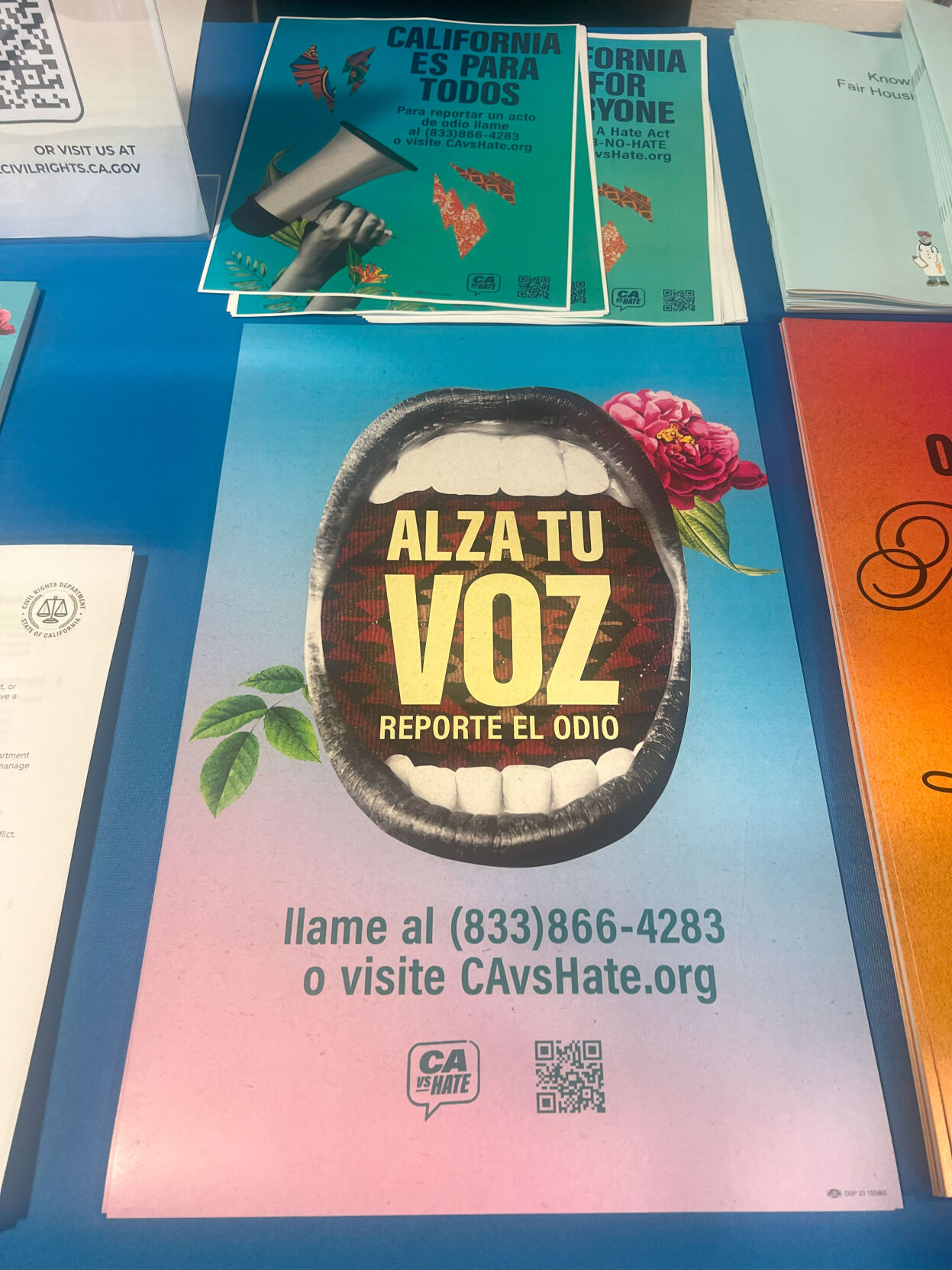
For one, they violate a person’s civil or common rights, such as “the right to go to school, the right to use public transportation, the right to use a public park,” said Los Angeles County Deputy District Attorney Paul Kim.
Hate incidents were discussed as those in which someone is targeted as a protected class, but the situation does not escalate into physical violence or property damage. They lack a “criminal component,” Har said. Examples involve verbal assaults and disgusting comments made on the basis of one’s identity, according to FBI Supervisory Special Agent Allan Roth Mackins. Under federal law, protected classes include identities that fall under disability, race, nationality, sex, religion and age.
“The numbers actually seem very low,” said Los Angeles County Sheriff's Department Detective Jan Wong, who noted that only one hate incident has been reported within the past year at Century Sheriff’s Station, the city’s regional station. “We don't find that that actually matches the feedback we're getting from the community. [A]s a Hate Crime Coordinator, it's indicative of the fact that people aren't really reporting.”
The panelists stressed the urgency of reporting hate incidents, which can later be used to prosecute hate crimes and even class action lawsuits. “Maybe this was the spark, maybe there’s a couple sparks, but oftentimes that person is going to turn into a flame, and I need those prior reports to prove that bias motivation,” Mackins said.
A network of organizations aiming to empower civic engagement in Southeast Los Angeles (SELA) gathered on Friday May 31 at Lynwood to facilitate a regional Hate Crimes Forum. Uriah Blackwell, 26, speaks about being a victim of a hate crime and reporting hate speech and hate crimes.
How to report
Regardless of citizenship status, anyone can report an incident where they’ve felt discriminated against, according to the panelists. Two options were recommended during the forum.
One option is to report directly to law enforcement by phone or online, if it’s not an emergency.
Another option is to report to a civil rights organization like California Vs Hate. The team can further assist in reporting to law enforcement if you wish to do so.
Step 1: Identify which agency you wish to report a hate incident or hate crime to.
Step 2: If law enforcement,
Call: 911, or 800-222-TIPS (if you wish to remain anonymous).
Go online to: https://lasd.org/sorts/
If California Vs Hate,
Call: 833-8-NO-HATE
Go online to: CAvsHate.org
Step 3: Choose your language.
Step 4: Follow reporting instructions.
Step 5: Take file number if reporting to law enforcement.
Step 6: Following up with law enforcement is not necessary, but welcomed. Officers may not reach back, but are collecting this data, Mackins said.
Community distrust in law enforcement
Also in attendance at the forum was Captain Edmundo Torres of Century Sheriff’s Station, the city’s regional station. Three other LASD officers accompanied him in traditional dark green and tan-colored uniforms; the file of officers seated at the front of the room and across the speakers was a notable presence.
“It’s not in our nature to report,” said Alberto Campos of SELA Collaborative, acknowledging the mistrust that some Latine and other communities of color hold against police, a reality that deters them from reporting hate speech and discriminatory violence. He said he believes it’s important to break that stigma associated with law enforcement officers and to, as he says, “create opportunities to be in the same setting” as them.
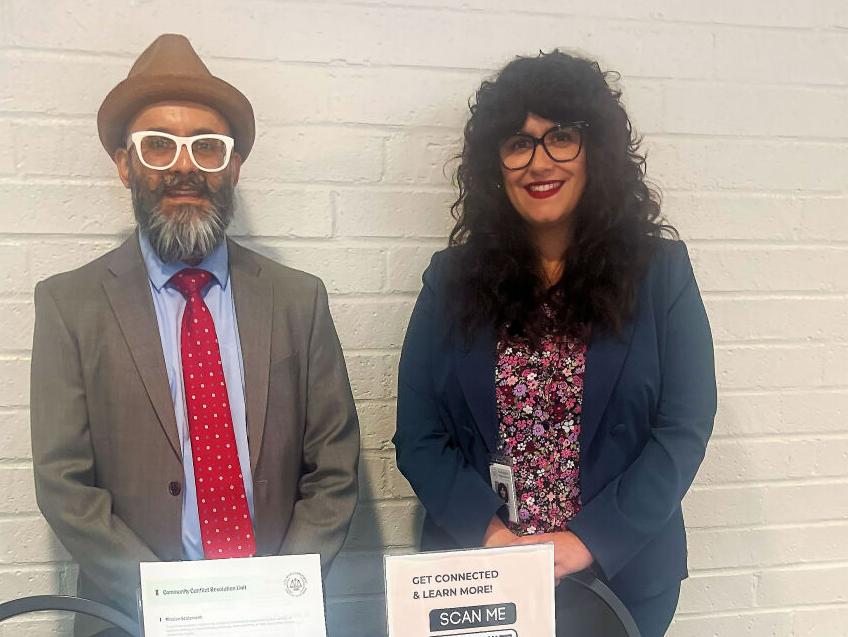
Panelists and attendees echoed similar remarks regarding law enforcement and other government agencies. “It’s up to us to regain that trust,” said California Vs Hate Attorney Mediator Christina Teixeira.
The Brady List is a record maintained by prosecutors that identifies law enforcement officers with a history of credibility issues, including misconduct. Capt. Torres’s name is listed. The Brady List was formed following the 1963 U.S. Supreme Court case Brady v. Maryland, and its purpose is to ensure fair trials by disclosing information that could affect credible testimony in court.
Capt. Torres introduced himself and made himself available for questions.
Community conflict resolution unit
After a break, the second panel spotlighted nonprofit organizations that support hate crime victims.
“A hate crime is experienced as a community,” said Harold Turner, Executive Director of National Alliance of Mental Illness Urban Los Angeles. Hate crimes are not isolated events, he said. Generations, families and communities are impacted when one person becomes the target of a hate-motivated incident. Therefore, mental health resources are essential to cope with the aftermath.
Blackwell agreed. “Had I had more information, had me and my family had more access to these resources, we could have dealt with it in a healthier way.”
In addition, proactive resources such as conflict-resolution skills are important, said Teixeira, which is why the Community Conflict Resolution Unit of the California Civil Rights Department offers workshops, training and mediations.
Blackwell said he looks forward to more events focusing on community relations such as these.
“I think something that was really well-spoken today is that it’s 12 o'clock on a Friday afternoon, people are working, so maybe creating more events where more community can actually show up and hear these thoughts, so that it’s not just other[s]...like myself, the community can hear it with their own ears as well.”

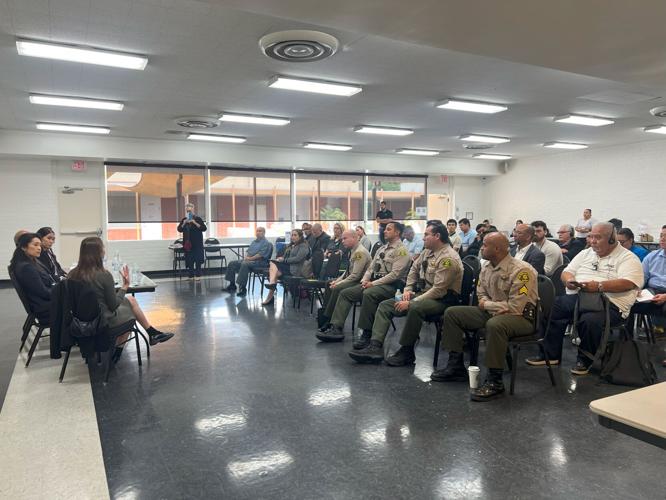
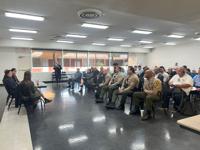







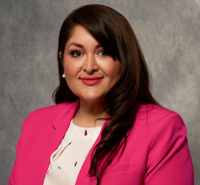

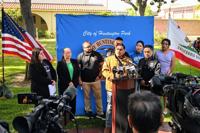
(0) comments
Welcome to the discussion.
Log In
Keep it Clean. Please avoid obscene, vulgar, lewd, racist or sexually-oriented language.
PLEASE TURN OFF YOUR CAPS LOCK.
Don't Threaten. Threats of harming another person will not be tolerated.
Be Truthful. Don't knowingly lie about anyone or anything.
Be Nice. No racism, sexism or any sort of -ism that is degrading to another person.
Be Proactive. Use the 'Report' link on each comment to let us know of abusive posts.
Share with Us. We'd love to hear eyewitness accounts, the history behind an article.